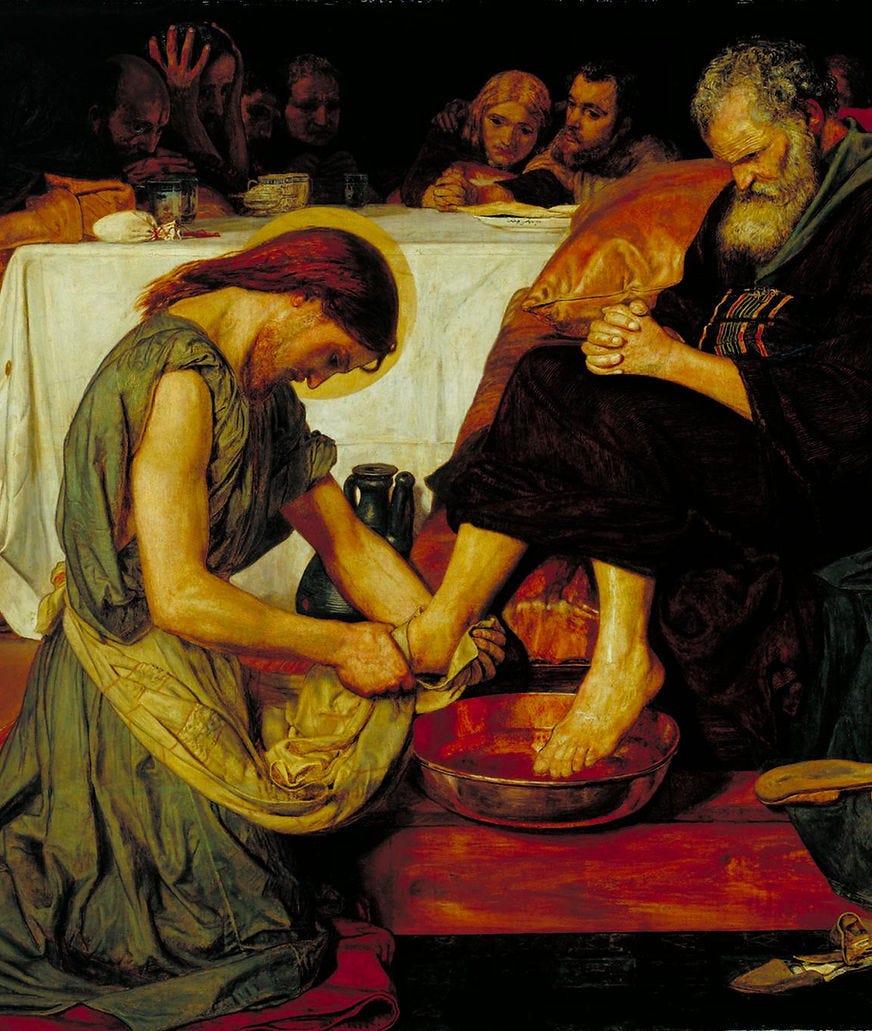An invitation to grow your faith.
Announcing a retreat and separately, a new online/in-person course for 2023
St Moluag’s Coracle is part of a wider apostolate called Mary’s Well, a ministry formed to help Catholics in Scotland in particular grow in their faith. This year we have taken a new step by organising a retreat for May 5th and also an online course. They are not connected, as in you need to do both, but they both ask the same sort of question - what does God have for you? We need time to explore and discern and our hope is these two initiatives are a first step for those who participate.
The Visitation Retreat: Pluscarden Abbey 5th-7th May 2023
A weekend group retreat looking at what the visitation says about our place in God's plan for the world. The retreat is designed to help you begin to explore the path God has for you and how part of that is sharing your own journey of faith with others, just as Mary did with St Elizabeth. Using reflective practice, periods of silence, journaling, discussion and imaginative contemplation; alongside some basic teaching on this momentous snap shot in Mary's (and indeed Elizabeth's) life; we will delve into your gifting's and your very own snapshots that have lead you to where you are now and where you might go next.
The retreat is an initiative of Mary's Well, a Highland Catholic apostolate and will be run by two qualified Spiritual Accompaniers from the Ignation Spirituality Centre in Glasgow and is aimed at adult men and women.
Places are limited to book quickly!
Please go to the link in the button below for more details
Servant Leadership Programme 2023
Led by Dr Sue Price, Director of Pastoral Outreach, Margaret Beaufort Institute of Theology and Eric Hanna, founder of Mary's Well and Editor of the online Scottish Catholic magazine; St Moluag's Coracle.
This is a mixed online and in-person course consisting of times of reflection and considering how the servant leadership model supports and develops parish ministries. It is one monthly session starting on the 19th April at 7pm and will last 1 hour, be reflective in its approach and will include some journaling homework.
There is a charge for the course, which is £8 per online session. This is an at cost level price for an excellent programme.
Please hit the button below for more details.
17th Febraury
St Finan, 661 AD
St Finan (or Finnan) was an Irish monk who trained under the great St Columba at Iona Abbey. St Finan was known as prudent, zealous for prayer and for following Gods will no matter what. He followed the model of all holy Bishops with his love of poverty, disdain for the world and a zeal to preach the gospel. When St Aiden of Lindisfarne died, St Finan became his successor and second Bishop of that Isle. In his time there he enjoyed positive relations with the King of Northumbria and had the delight of welcoming two other nearby Kings into the Catholic faith - King Siegbert of the East Saxons and King Peada of the Mercians. These conversions lead to missionaries being received into their respective Kingdoms. Saint Finan was also involved in the controversy surrounding the dating of Easter. Prior to the 7th Century the British/ Irish Church had followed a different dating to that of Rome. Evidence suggests he was open to the dates suggested by Rome but as it had not come down definitively at that time on a date he continued with the tradition already present in the British and Irish Churches. St Finan died ten years after becoming Bishop at Lindisfarne and was laid to rest next to St Aiden.
18th February
St Colman, AD 676
St Colman or Colmoc and the many derivatives make this a difficult Saint to pin down. There is indeed a St Colman of Tyrone who we in Scotland celebrate on this day, but in Ireland is August 6th. That St Colman led the Monks at Lindisfarne at the time of the famous Whitby Synod that decided on what date Easter would be followed - the Roman computation or how the British/Irish churches had been following it. St Colman then leaves Lindisfarne and begins a new monastery in Co. Mayo which was for Saxon monks. There is however mentioned in Scottish sources a St Colmoc of Moray who is celebrated on this day, little is known about him but it seems he had established a Church at Tarbet in Eastern Ross-shire. Was this a different Saint, who had a similar name and due to the gaelization of the Scottish Church became conflated with the Irish St Colman? The other possibility is that the St Colman of Moray is really just a derivative of St Columba, which is a common feature of the hagiographies of Saints in Scotland with a similar name to Columba. This particular Saint shows yet again the difficulties historians and researchers have when analyzing the varying sources regarding the Saints of Scotland and the British Isles. On this day though if you like to pray along with the Saints of our past, I would seek St Colman of Tyrone to pray for the health and vitality of the Church.





